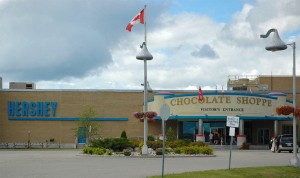Re-purposing in the real world
 My book club is currently reading “The Best Laid Plans” by Terry Fallis. Self-published in 2007, the book went on to commercial publication, and won several awards, including CBC Radio One’s “Canada Reads” contest in 2011. There’s a well-received sequel, a TV mini-series is planned, etc. (Author success story, hooray!)
My book club is currently reading “The Best Laid Plans” by Terry Fallis. Self-published in 2007, the book went on to commercial publication, and won several awards, including CBC Radio One’s “Canada Reads” contest in 2011. There’s a well-received sequel, a TV mini-series is planned, etc. (Author success story, hooray!)
The plot pairs a burned-out political operative with a crusty, straight-shooting professor of engineering. The engineer ends up, virtually by accident, as a new member of Parliament. Comic satire, set in Ottawa.
Without adding any spoilers (besides the fact they win the election) I’m enjoying it more than I thought I would. The novel takes the idea of doing what’s right, minus the political games, and plays around with that – a fairy tale we still cling to and want. A number of plot details, however, strain credulity, to put it mildly.
For example, after taking office, our heroic citizen-MP finds a way to re-purpose a dying shoe factory in his riding (district). It turns out the facility is perfect for manufacturing a brilliant new wireless router – invented by a Canadian, naturally. Or it will be, after a few minor tweaks. Federal funds are also easily arranged to retrain the shoe factory workers for the new endeavor.
Wow. Where do I start? Never mind, you can find your own reasons why that would not generally happen (or work) in real life.

The now-closed Hershey plant in Smiths Falls is still looking for a new purpose. Photo: Adam Gerhard, some rights reserved.
Which leads me to a recent item in the Ottawa Citizen about the old Hershey’s chocolate factory in Smiths Falls, Ontario. As a dedicated consumer of chocolate, I miss it dearly. But not nearly as much as the 400 people who lost their jobs there when the plant closed in 2008.
Although the town has other ways to brand itself, such as the Rideau Canal, the closure tore the community’s identity. Finding a buyer for the plant that might provide more employment has not been easy either. As the article says:
Hershey has had nothing but trouble trying to unload the 472,430-square-foot facility, located on more than 40 acres of land in Smiths Falls.
In June 2009 the sale of the plant was announced to water bottler Aquablue International of Quebec, and Aquablue founder Manuel da Silva told a lavish press conference that 130 jobs would be created to bottle a yearly 340 million litres of water, almost all of it drawn from Smiths Falls’s municipal water supply. The company also said it would operate a recycling facility and an amusement park at the site.
None of those plans materialized.
Instead, the facility has now been bartered to a holding company, which hopes to find a buyer.
We often read that the old manufacturing economy in the U.S. and Canada has largely been supplanted by service and information sector employment. All sorts of communities worry about the problem of jobs: how to attract them, keep them and make a decent living in the new global economy.
I’d like to think we need the whole ball of wax: raw materials, basic manufacturing, skilled manufacturing, services and informational/brain jobs. (Bottled water is not something I consider a pressing need, but that’s just one opinion.)
It’s not clear where the North American economy is headed, in that sense. But Smiths Falls, and similar communities, would like to be part of the picture.
Tags: Best Laid Plans, canada, CBC Canada Reads, economic renewal, Hershey's, jobs, Smiths Falls, Terry Fallis








Best Laid Plans is a fun read. I look forward to the mini-series. (Btw: I’m an American, fascinated by Canadian politics and culture.)
Always interesting to me to learn about similarities and differences between Canadian society and my own. Sometimes I feel like Canada is “America done right”, but the Smiths Falls situation shows that we both have many problems we find equally difficult to surmount.